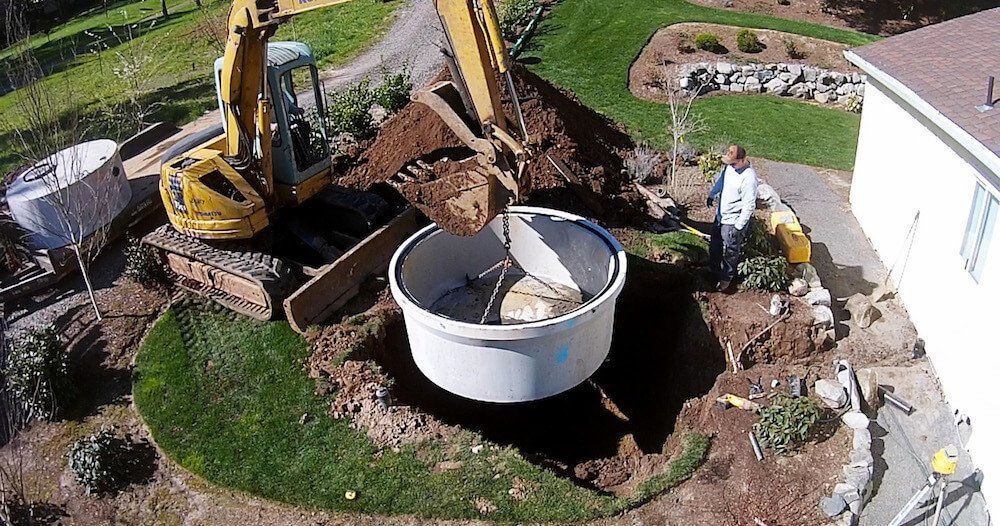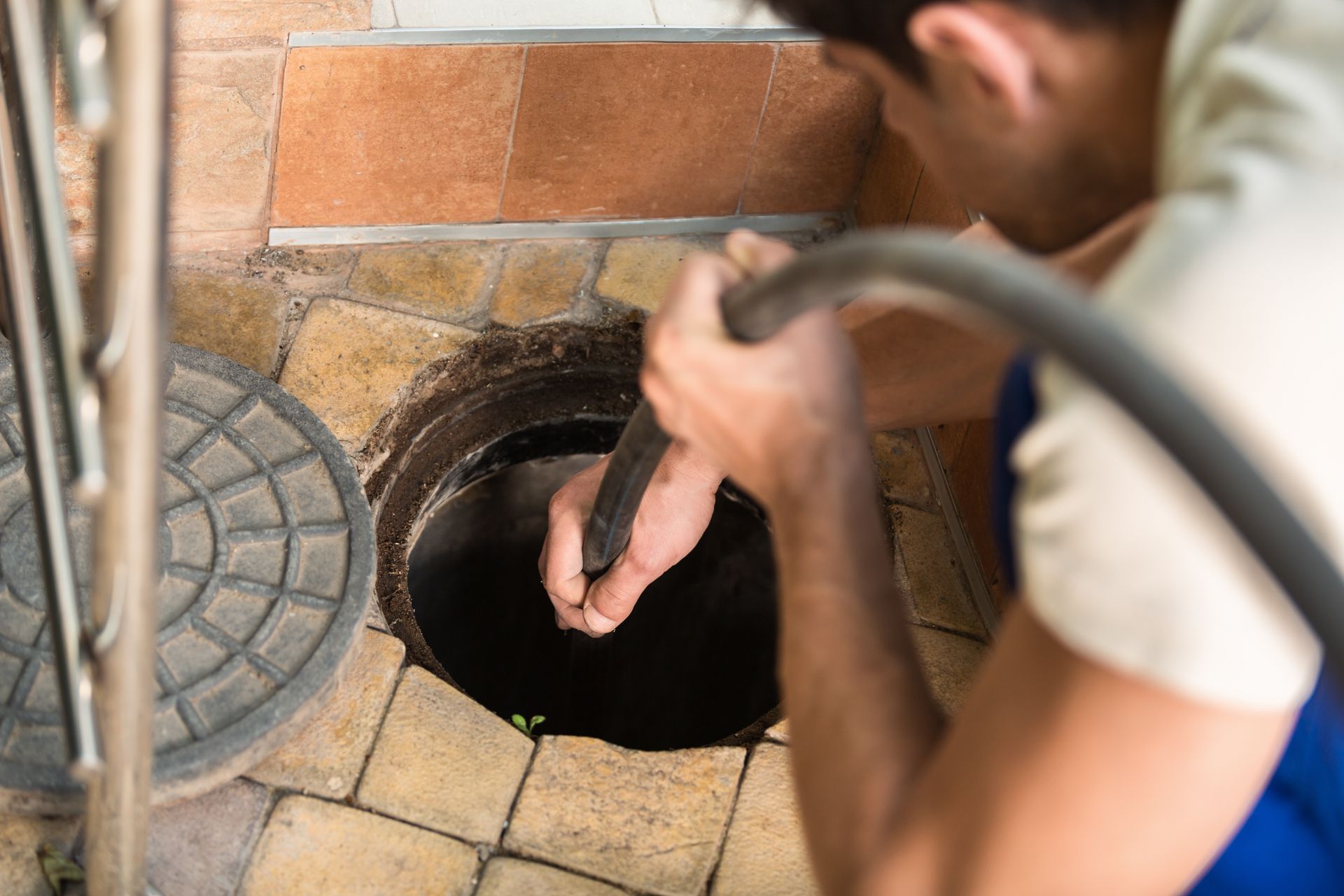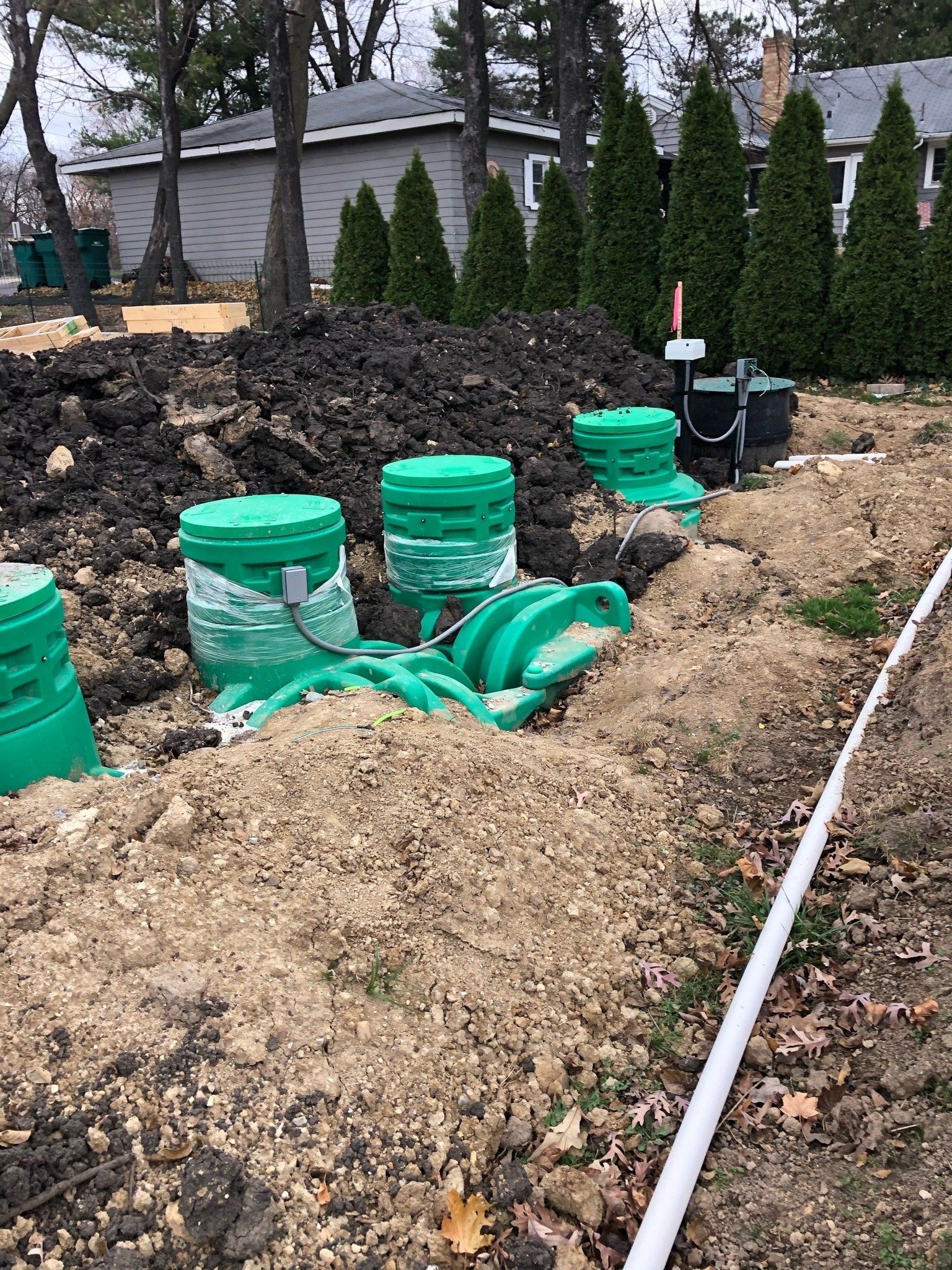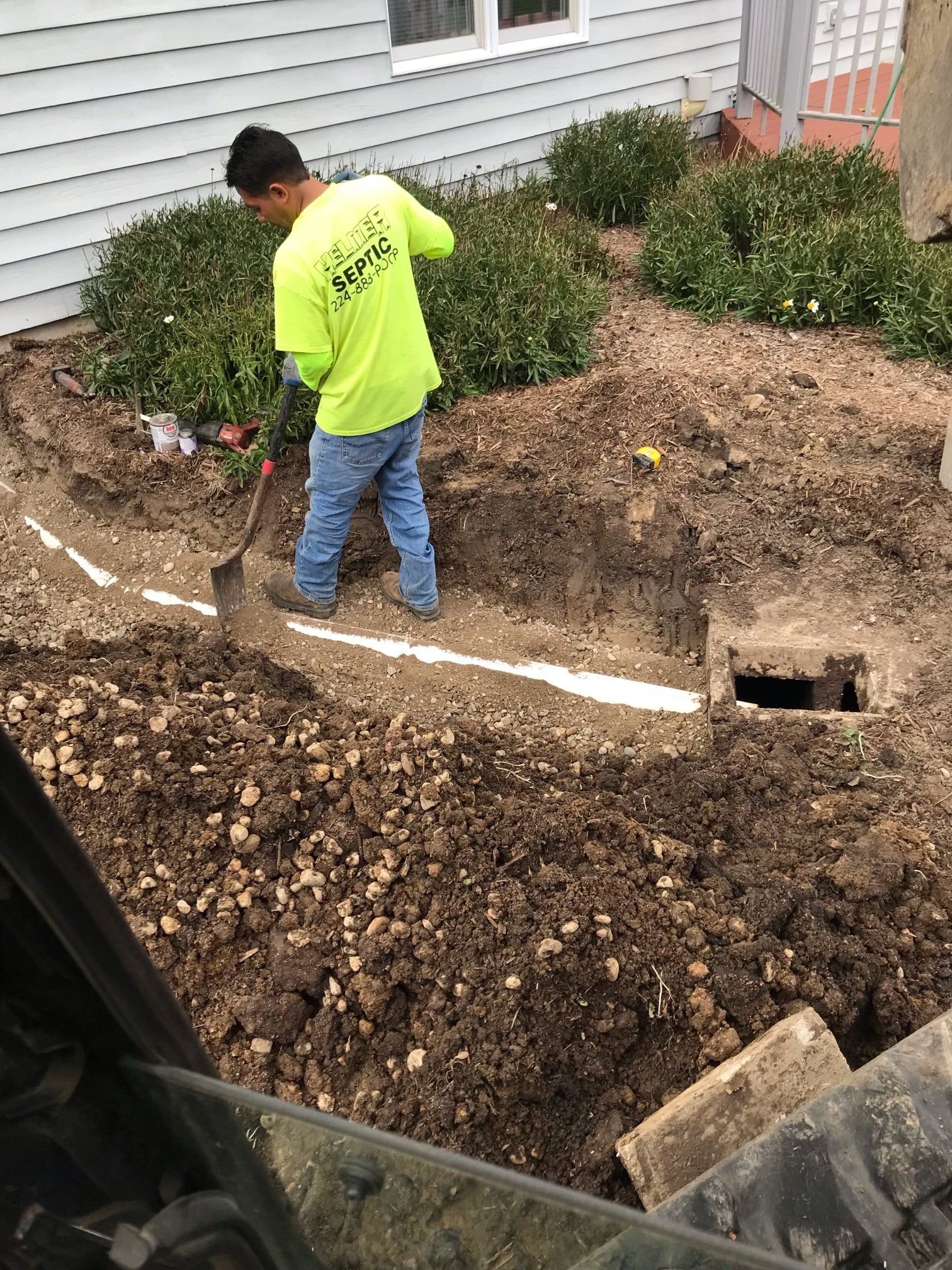224-888-POOP 60 Detroit Street Suite F Cary, IL 60013 | Mon - Fri 7AM- 5PM / Emergency Services are available on weekends
WHY SEPTIC SYSTEMS FAIL?

Septic systems fail, most often, because the owners of the system don’t know how it works or why it matters.
Septic systems create an organic relationship between water, soil, and bacteria that naturally and effectively disposes of the waste and excess water coming from your home. This is an amazing and environmentally friendly way to handle the convenience of a modern, well-plumbed building. However, there are a few things that can go wrong – some caused by human inexperience or carelessness, and some by nature.
HERE ARE THE TOP 6 REASONS WE SEE SEPTIC SYSTEMS FAIL:
- Tree roots or other organic growth. Excessive organic growth from your yard or pasture can interfere with your drain field or the plumbing from building to tank but is usually easily fixed once discovered.
- Solid materials in the tank. Flushing feminine products, baby wipes, and bits of food or other solids can seriously back up your septic tank. If you can avoid using a garbage disposal and flushing such items, do so, but if you occasionally run your disposal or have accidentally flushed some solid waste products, simply pump your septic tank a bit more often to be sure it’s not causing back-ups.
- Excess water use. Do a load of laundry per day rather than 10 loads on the weekend. Try to limit long showers and don’t leave the water running when not in use – using just the amount of water you need will help your drain field to not overload.
- Harsh bacteria-killing chemicals. Natural cleaners and septic-friendly soaps and paper products help ensure that the bacteria in your tank are alive, healthy, and doing its job. Plus, natural products are better for people and animals, too!
- Compacted drain field. Bad weather or heavy vehicle or livestock traffic can compact your drain field so it doesn’t work properly. Avoid driving over your drain field and try to keep large animals off of it. Of course, you can’t control the weather, but it is wise to check on your field after big storms and make sure there isn’t standing water on it, which is a sign of a back-up.
- Tank problems. A dirty tank, a tank with the wrong-sized baffles, or a cracked or damaged tank can all cause a septic system failure. It’s important to make appointments to regularly inspect and clean your septic tank to avoid unpleasant shut-downs or repairs.
Remember that knowledge is an important aspect of keeping your septic system in working order.



Contact
224-888-POOP
60 Detroit Street Suite F
Cary, IL 60013
Mon - Fri 7AM- 5PM
Emergency Services are available on weekends

Services
